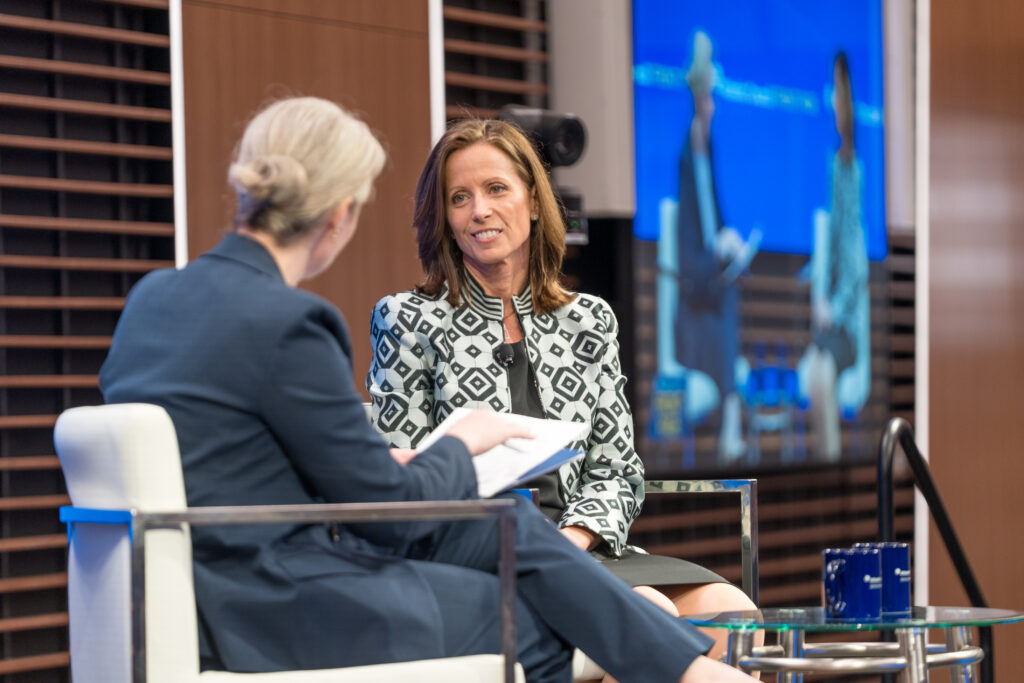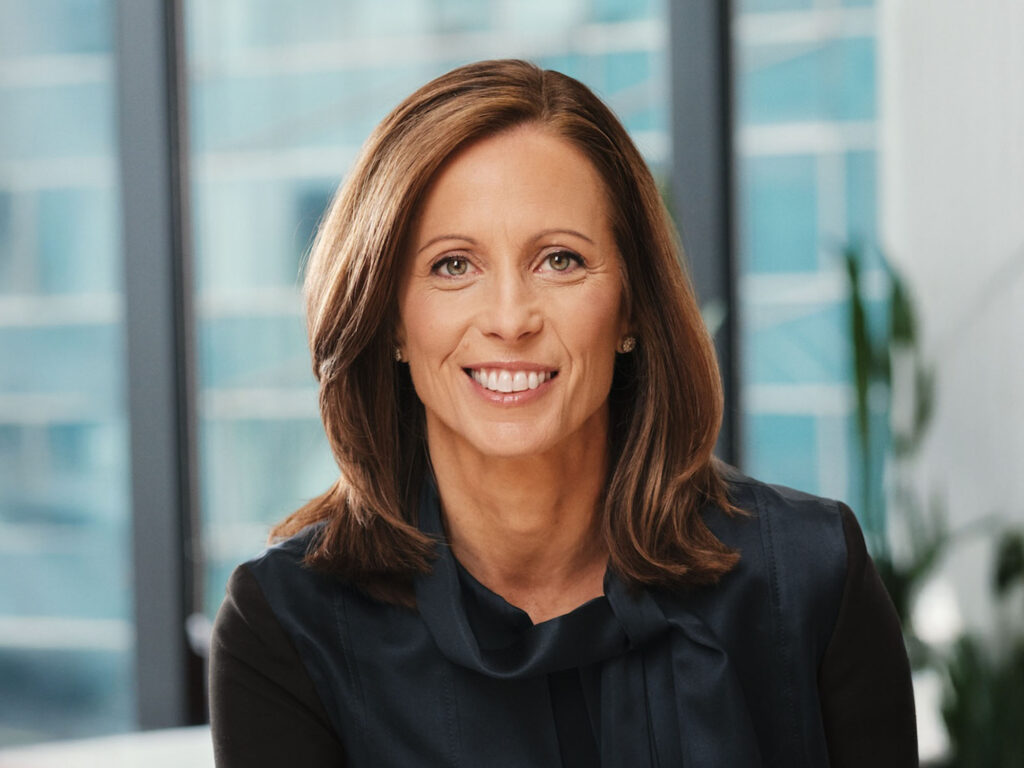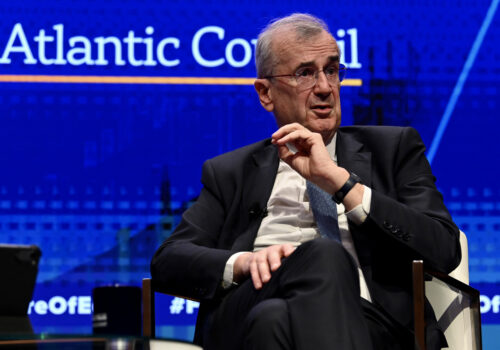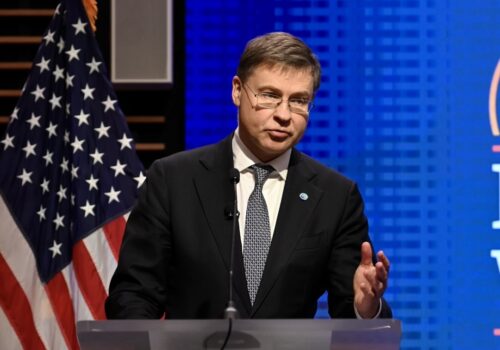Watch the full event
According to Nasdaq CEO Adena Friedman, the movement of illicit funds through the financial system “is a global issue, and it requires global solutions.”
Friedman spoke at an Atlantic Council Front Page event on April 25, citing a Nasdaq study from last year that found that more than three trillion dollars had moved through the global financial system illegally in 2023.
Pondering the solutions needed for such a large-scale issue, Friedman said that the public, private, and technology sectors will need to work together. Markets process billions and billions of transactions, and, as she explained, it can be difficult to distinguish between those that are legitimate and those that are not.
“It’s a little bit of looking for a needle in a haystack,” Friedman said.
Below are highlights from the conversation, moderated by Economic Statecraft Initiative Director Kimberly Donovan, which covered technology’s role in the financial system and the impact of global volatility on markets.
When fin meets tech
- For Friedman, artificial intelligence (AI) is an increasingly promising approach to detect and report financial crimes to banks and law enforcement. “We’ve got to be able to unleash the technology to the best of its ability,” Friedman said.
- “It’s amazing, unfortunately, how sophisticated the criminals can be” as they use more sophisticated tools, including AI and other leading-edge technology, Friedman warned. She said that banks, markets, and law enforcement would need to look to AI, cloud technology, and automation to thwart and disrupt the financial dealings of criminals and criminal networks.
- Friedman said she has seen a shift among banks in the last decade, as competition among them has been tempered with a sense that collaboration is needed to solve the problem of financial crime.
- Technology has also helped Nasdaq respond to market shocks, Friedman pointed out. In the first ten days of April, she said, Nasdaq experienced five of the top six trading days in equities ever in the United States and four of the six top options trading days. At the peak, on April 7, “we had 550 billion messages flowing through our systems in that day, just to be able to manage the level of supply and demand that was coming into the markets,” she said. That’s roughly double the previous number of daily messages.
Responding to recent volatility
- “It’s a very, very dynamic time for investors,” Friedman said, speaking at the end of a month that has been volatile for markets following back-and-forth US tariff announcements.
- “I always try to put myself the head of an investor when you go through these periods of uncertainty and change,” Friedman said, explaining that in response to greater uncertainty, many investors are pulling back. “There’s a lot of change. There’s a lot that’s unknowable and therefore, they’re taking risk off.”
- But this approach is likely to be followed in short order by investors redeploying their capital, Friedman said.
- Looking at how investors responded to the COVID-19 pandemic is instructive, she explained. In the early days of the pandemic, when uncertainty was most acute, there were big drawdowns in capital. But as soon as people realized that they could operate in the new environment, investors were able “to bring their capital back in a smart way and redeploy,” Friedman explained.
- But markets have adapted to the shocks and volatility, she added. “I just want you to understand that the plumbing has been working,” Friedman said of markets’ resiliency to respond to recent trading activity and ensure stability.
John Cookson is editor of the New Atlanticist.
Watch the event
Further reading
Sun, Apr 20, 2025
Inside the IMF-World Bank Spring Meetings as leaders navigate the global trade war
New Atlanticist By
Amid an economic climate of great uncertainty, we dispatched our experts to the center of the action in Foggy Bottom to share their biggest takeaways from a pivotal week for the global economy.
Thu, Apr 24, 2025
France’s François Villeroy de Galhau on a US recession: ‘Bad news for the US is bad news for all, including for Europe’
Transcript By
The governor of the Banque de France, speaking at the Atlantic Council, said that the European Central Bank would likely cut interest rates further this year.
Thu, Apr 24, 2025
In defense of ‘boring’: A European leader’s message to Trump
Inflection Points Today By Frederick Kempe
EU Commissioner for Economy and Productivity Valdis Dombrovskis spoke at the Atlantic Council in Washington on April 23, making the case for greater predictability.
Image: Nasdaq CEO Adena Friedman speaking at the Atlantic Council, April 25, 2025.




